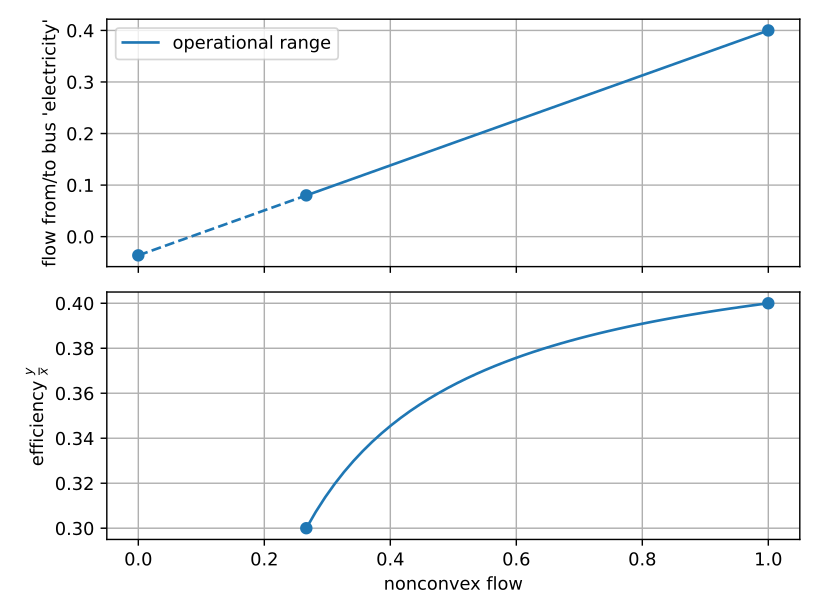We released two new versions of solph. One is a stable maintenance release (solph 0.5.4 at PyPI, solph v0.5.4 at GitHub), the other is a packaged preview for the next release (solph 0.6.0a1 at PyPI). In the actual release features the following changes:
- Consistency
- Allow sinks/sources to have multiple inputs/outputs
- Allow lower limit for generic_integral_limit
- Fixes
- Display inline math correctly and hint towards the usage of the inbuilt slope and offset calculation methods (
OffsetConverter) - Adapt to new Pandas API and fix warnings
- Formulate
full_load_timedocstring specific for energy
- Display inline math correctly and hint towards the usage of the inbuilt slope and offset calculation methods (
- Improvements “under the hood”
- Introduce variable for storage losses
- Replace _Sequence by _FakeSequence
We decided to have an alpha version packaged as well, which mostly changes the way storage_costs are considered. Before, we took into account every time step, which eventually leads to double weighting of the initial/last time step if the storage is balanced (i.e. first and last time step are the same). As the previous implementation wasn’t really broken in all cases, the new way is not strictly a fix. And as it will lead to different results compared to the previous implementation, the change shouldn’t be part of the v0.5 release. So, if you want to consider storage costs, this release is just for you.

